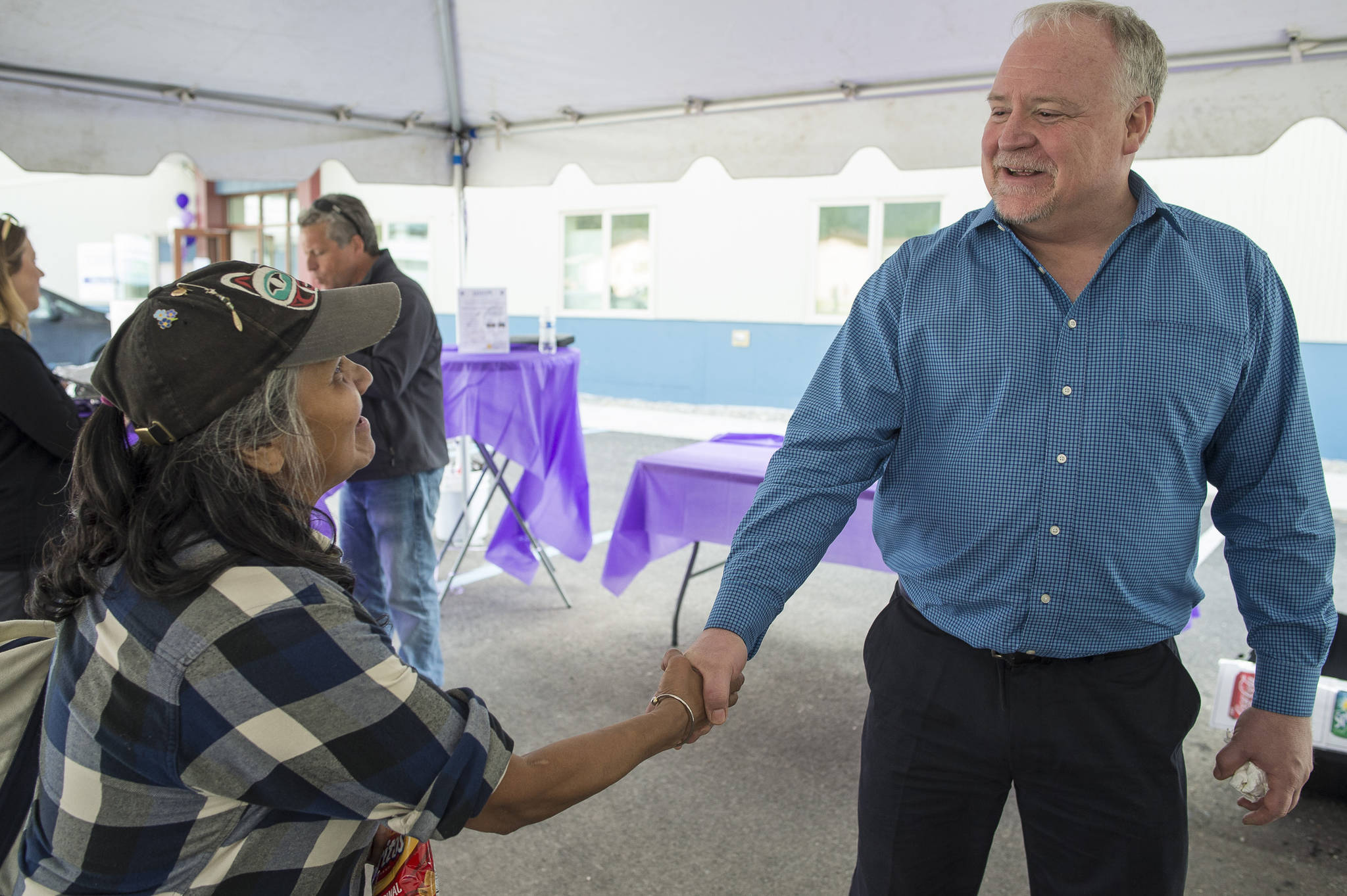Clarification: An earlier version of this article stated HRSA contacts the state’s primary care association for information about communities. HRSA contacts the State Primary Care Office, specifically, which is different from a state’s primary care association.
The medical clinic at Housing First has served hundreds of people in the past year and a half, and those who run it are hoping to make it more viable long-term.
Juneau Alliance on Mental Health, Inc. (JAMHI) Health and Wellness runs the clinic, and JAMHI Health and Wellness CEO Dave Branding said the clinic charges rates on a sliding scale. That rate structure isn’t sustainable long-term, he said.
That’s where the governor and the federal government come in.
In February, Gov. Mike Dunleavy sent a letter to the Health Resources and Services Administration (HRSA) requesting that the Lemon Creek area be designated as a Medically Underserved Population (MUP). This designation identifies groups of people who have a lack of access to primary care services.
The designation, Branding said in a phone interview, would help health and homeless organizations in Juneau compete for federal funds.
“We’re hoping that it will help JAMHI,” Branding said, “but really what that designation helps is the community.”
HRSA uses factors such as a community’s population-to-provider ratio, infant mortality rate and people over the age of 65 to identify areas and populations throughout the country that need federal assistance. On somewhat rare occasions, governors can make specific requests, HRSA Director of the Division of Policy and Shortage Designation Melissa Ryan said in a phone interview.
Dunleavy’s letter, dated Feb. 7, specifically identifies Census Tract 4, which includes Lemon Creek Correctional Center and Housing First (which provides housing for 32 especially vulnerable homeless people). People reentering the community after incarceration, Dunleavy’s letter states, struggle to get the treatment and help they need.
[St. Vincent de Paul looking to expand services]
The letter came 10 months after the Juneau Coalition on Housing and Homelessness agreed to request that former Gov. Bill Walker send a letter to HRSA requesting this. The Walker administration didn’t get around to sending the letter, but the Dunleavy administration was able to send it.
The governor’s proposed budget proposes making large cuts to multiple programs that fund organizations in the state fighting homelessness. That has homeless advocates in the state worried. A request for further comment from the administration about the MUP letter went unanswered.
Branding said the clinic at Housing First could apply to eventually become a Federal Qualified Health Center (FQHC). This would allow the clinic to continue to charge patients on a sliding scale while making ends meet due to federal funds. Branding said the clinic has served about 500 patients since it opened in January 2018.
According to data from the HRSA website, Alaska has 30 MUPs or Medically Underserved Areas (MUAs), 11 of which were added after a governor’s request. Three of those are in Southeast (areas in Haines, Skagway and Yakutat), according to HRSA data. Alaska has the highest cost per capita in the U.S. for health care, studies have shown.
Juneau’s homeless population has increased in recent years.
In the 2018 Point in Time Count (an annual head count of those living on the street) showed that there were 235 homeless people in January 2018, an increase of 20 people from the count in 2017.
Ryan said that when HRSA gets a governor’s request, employees get in touch with the State Primary Care Office to gather statistics and information about the community or population in question. Once they have all of their necessary information, she said, they typically make a decision one way or another within 90 days.
She said if a population or area gets a MUP or MUA designation, it qualifies them for grants but doesn’t mean they’ll absolutely get the funding they want.
“While it might be a potential opening, it isn’t a guarantee that you will get that funding, obviously,” Ryan said. “You have to go through grant competitions. While it could be helpful just because you’re in the door of the movie theater doesn’t mean you have a ticket to go inside, if that makes sense.”
• Contact reporter Alex McCarthy at amccarthy@juneauempire.com. Follow him on Twitter at @akmccarthy.

